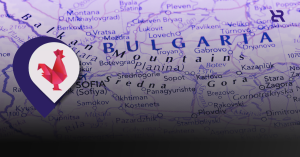We met with Vít Horký during Czech Startup Week 2025 in Prague where Engaged Investments and Tech Happy Hours took place. Horký returned to the Czech Republic in 2019 after selling his startup Brand Embassy to an Israeli–American NASDAQ-listed company. After the exit, he began thinking about how he could apply the lessons he’d learned abroad to support entrepreneurs back home.
“It was a good exit for our investors, our team, and for us as founders,” he recalls. “After spending time in the US, I felt a strong need to give back to the local startup ecosystem. Many accomplished founders, far more experienced than I was, helped me along the way.”
From that desire to “pay it forward” emerged Czech Founders, a nonprofit that has quickly become one of the country’s most influential forces in entrepreneurship. Aiming to keep European founders at home, he also supported the launch of a new fund in November: United Founders, an €80 million venture fund and founders’ community backing Europe’s next generation of frontier-tech startups.
“No European tech company has surpassed €100 billion in valuation in the past 50 years,” Horký says. “Our ambition is for Europe to create its own trillion-dollar giants like Apple, Microsoft, Amazon, Google, Nvidia, and Meta.”
Building an ecosystem for scaling
To get to that trillion-dollar dream, startup ecosystems need to offer the right support to the founders. Horký explains that Czech Founders was designed from day one around three interconnected goals to enable that.
The first is community building, creating a platform where founders openly share practical knowledge about scaling internationally because, as he says, “founders learn best from other founders.”
The second is public policy, advocating for legislation that makes it easier to build startups in the Czech Republic, including the organization’s major contribution to the new employee stock option law taking effect on January 1 after more than three years of nonprofit work.
The third is entrepreneurial education, with programs that bring entrepreneurship into high schools, a long-term mission they plan to keep expanding because starting early “shapes how students think about what’s possible.”
Fixing the early-stage gap: The birth of Czech Founders VC
Each year, Czech Founders surveys local entrepreneurs about their biggest challenges. Several years ago one issue dominated: the lack of early-stage capital paired with real operational experience.
“There were angels and VCs in the Czech Republic, but not enough pre-seed capital with hands-on value from accomplished founders,” Horký explains.
So Czech Founders built the solution themselves: Czech Founders VC, a venture capital fund backed by more than 45 successful Czech tech founders as LPs.
“What’s amazing is that our partners don’t just invest money, they invest their time,” he says. “Their know-how helps us make better investment decisions and support startups more effectively.”
In just three years, the fund has invested in over 30 startups. As Horký explains, the Czech Republic’s strengths shine through: B2B SaaS, enterprise AI, and increasingly, space tech and university spin-offs.
Although Prague remains the country’s gravitational center, the Czech ecosystem is increasingly distributed. “Even though the country is small, many founders live outside the capital,” Horký points out. “Brno, Ostrava, and other regions have strong ecosystems.”
He highlights the efforts of CzechInvest and conferences like Engaged Investments, which help bring visibility and support to regional hubs.
“There is no single ideal founder profile”
Horký doesn’t believe there is a single ideal founder profile, but he does point to a few qualities that consistently help founders succeed on a global scale. “European founders usually have strong technical backgrounds, but often lack global ambition and go-to-market expertise,” he says. “We look for people with bold ideas and the ability to learn at extreme speed — especially how to scale globally.”
They don’t need a proven track record, what matters is whether they can learn fast, talk to users early, build a sales engine, and scale quickly. Those abilities, he says, matter far more than past credentials. “That’s the only way to compete globally,” he adds.
…and the Red Flags?
Here Horký is direct: “One red flag is when early-stage founders lack hustle mode. It’s not about glorifying 16-hour days or the ‘9-to-9’ stereotype. It’s about showing an extremely steep learning curve. If the learning speed isn’t high, that’s a problem.”
Europe’s tech future depends on keeping its founders at home
The idea that Central and Eastern Europe lags behind Western Europe is outdated, Horký argues.
“First, we should stop repeating how much worse we are. In many ways, we’re the best,” he says. “Silicon Valley is full of outstanding AI scientists and engineers from CEE. And companies like 11 Labs show that founders can build world-class tech from the region.”
What Europe does need, he emphasizes, is to ensure that founders stay, and scale, in Europe. “For Europe’s tech sovereignty, it’s essential that founders stay in Europe. The IP and future wealth should remain here.”
A major part of that solution lies in the proposed 28th Regime, also known as “EU Inc.”, a single pan-European business entity that would let founders operate seamlessly across all member states.
“It’s one of the most important initiatives,” Horký says. “Over 16,000 founders and investors have supported it. The Czech Prime Minister signed a letter of support, along with 18 others. Ideally, all 27 will join.”
If the initiative becomes EU law, startups could operate under one set of rules across the entire continent, allowing Europe to move “as fast and agile as the US or China.”








